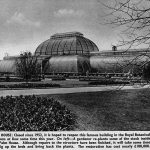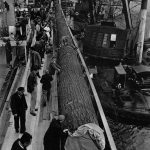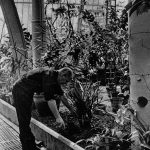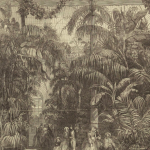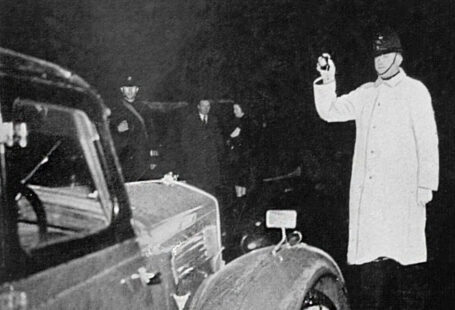Last night, the final episode aired of this series of Who Do You Think You Are? It explored the ancestry of BBC anchor Sophie Raworth, and provided an opportunity to reflect on the discoveries of this series, particularly the passions and professions that have been shared throughout the generations of a family — oftentimes unknowingly! Sophie’s family was no exception to this pattern.
Musical Motts
An early discovery in last night’s episode was that Sophie has several ancestors who were involved in the piano-making business as pianoforte makers and pianoforte hammer coverers. Her direct ancestor Samuel Mott was, for a time, a lowly pianoforte hammer coverer in his brother and cousin’s pianoforte-making business.
The Mott family business enjoyed its fair share of success, including the introduction of the patented sostenente piano.
On 18 October 1825, the Chester Courant printed the following:

Isaac Henry Robert Mott was the first to use ‘sostenente piano’ to describe his instrument in 1817. The term comes from the Italian verb sostenere, which translates to sustain. The Encyclopedia of Keyboard Instruments, edited by Robert Palmieri, defines the sostenente piano as follows:
Sostenente (or sostinente) piano is the name given to keyboard instruments on which the duration of sounds is artificially lengthened. This can be done by (1) an endless bow, (2) compressed air, (3) repeated and quick striking of HAMMERS, (4) free sounding reeds, (5) or electric and/or electronic devices. The name sostenente is derived from the sostenente piano invented by Henry Robert Mott of Brighton (1817). A sostenente piano is by no means exclusively a piano.
However, their business was not an unmitigated success. On 22 March 1824, the Morning Chronicle reported on the court case brought against the Mott family business. The patented sostenente piano attracted the attention of an investor who paid advances to the company and sums to the Motts. Unfortunately, it turned out that the company was yielding no profit and the investor took the Motts to court.

Newspapers are a fantastic resource for researching court cases and proceedings. Local newspapers, in particular, can shed light on smaller legal cases that wouldn’t have made it to the larger national papers.
Being taken to court was not the end of the trouble facing the Mott pianoforte makers. Whilst last night’s episode focused on the tragic life of Samuel Mott, he was not the only Mott to meet with misfortune. The West Kent Guardian reported on bankruptcy filings on 14 November 1840 and listed ‘Isaac Henry Robert Mott, Pall-mall, pianoforte maker’.

Bankruptcies used to be detailed in newspapers, providing names, occupations, and locations. Some newspapers specialised in bankruptcy news and coverage, such as Perry’s Bankrupt Gazette, which is available on The British Newspaper Archive.
By 1848, there is a notice in the Illustrated London News of the Mott pianoforte makers selling off their stock of ‘the best and finest instruments ever manufactured’.

Green thumb family
For Sophie Raworth’s family, gardening is a shared passion. Over the course of her life, Sophie has made many trips to Kew Gardens and, in particular, the Palm House. It wasn’t until this journey into her family history, however, that she learned one of her ancestors had worked at the Palm House in 1891 as a student gardener.
The British Newspaper Archive can provide great insight into the history of local institutions such as Kew Gardens and its Palm House.
The journey into her family’s gardening past led to the discovery of her five-times great-grandfather Abraham Crowder, a gardener employed by the landed gentry with his own nursery to boot. Abraham even grew his own pineapples – which was considered an exotic fruit and seen as a coveted status symbol.

A place that grew pineapples was given the catchy name of a pinery winery. Having the specialised skills to grow pineapples in the English climate became a coveted commodity and advertisements for such gardeners starting appearing in newspapers. Here is such an ad from 1789.

An 1842 article gave a comedic account of the history of the first pineapple grown in England. To read the entire article, register today to view three articles for free!

Newspapers are a rich source for exploring and following the trends and fads of years past. Amongst the offerings of The British Newspaper Archive, there are quite a few articles that touch on the pineapple-growing craze. Here is an article from 1844 printed in the Liverpool Mail on growing pineapples locally: ‘We have lately noticed the large importations of foreign fruit of this description, which have made pineapples almost as plentiful as gooseberries. Their flavour, however, is far from equal to that of those of home growth, which are likely to become a favourite subject of culture’.

Did any of your ancestors get swept up in the fads of their times? Did they share the same passions and professions as you? Or did they met with hardships and end up bankrupt or in the workhouses? Look through all our blog posts from this series and more and learn how The British Newspaper Archive can help flush out your research and paint fuller pictures of your ancestors.






